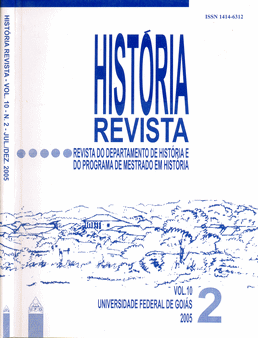IDENTITY, ETHNICITY, GLOBALIZATION AND INDIAN POPULATIONS IN BORDERS: THE KAMBA PRESENCE IN CORUMBÁ, MS (1945-1987)
DOI:
https://doi.org/10.5216/hr.v10i2.9160Abstract
This paper has as a purpose to study the relationships among identity, ethnicity and globalization in Latin America. It is taken as a starting point the presence of Indian populations in borders, it is verified that the social-economic, political and cultural processes which were intensified in the last decades of the 20th century, designed as a group by globalization, are highly complex and cause strong impacts in the cultural practices and in the identities of several groups, creating contradictory, heterogeneous and fragmented situations. Particularly, it is analyzed, in a preliminary way, the historical trajectory of the Kamba Indians, in the border Brazil-Bolivia. In a dialogue between History and Anthropology, it is considered the historical development of the identities assumed by the Kamba considering their particularities, in a situational perspective.
Key words: Identity, ethnicity, globalization, Latin America, Kamba Indians.
Downloads
Downloads
Published
How to Cite
Issue
Section
License
Declaração de Direito Autoral
Concedo à História Revista o direito de primeira publicação da versão revisada do meu artigo, licenciado sob a Licença Creative Commons Attribution, que permite o compartilhamento do trabalho com reconhecimento da autoria e publicação inicial nesta revista.
Afirmo ainda que meu artigo não está sendo submetido a outra publicação e não foi publicado na íntegra em outro periódico, assumindo total responsabilidade por sua originalidade, podendo incidir sobre mim eventuais encargos decorrentes de reivindicação, por parte de terceiros, em relação à autoria do mesmo.



